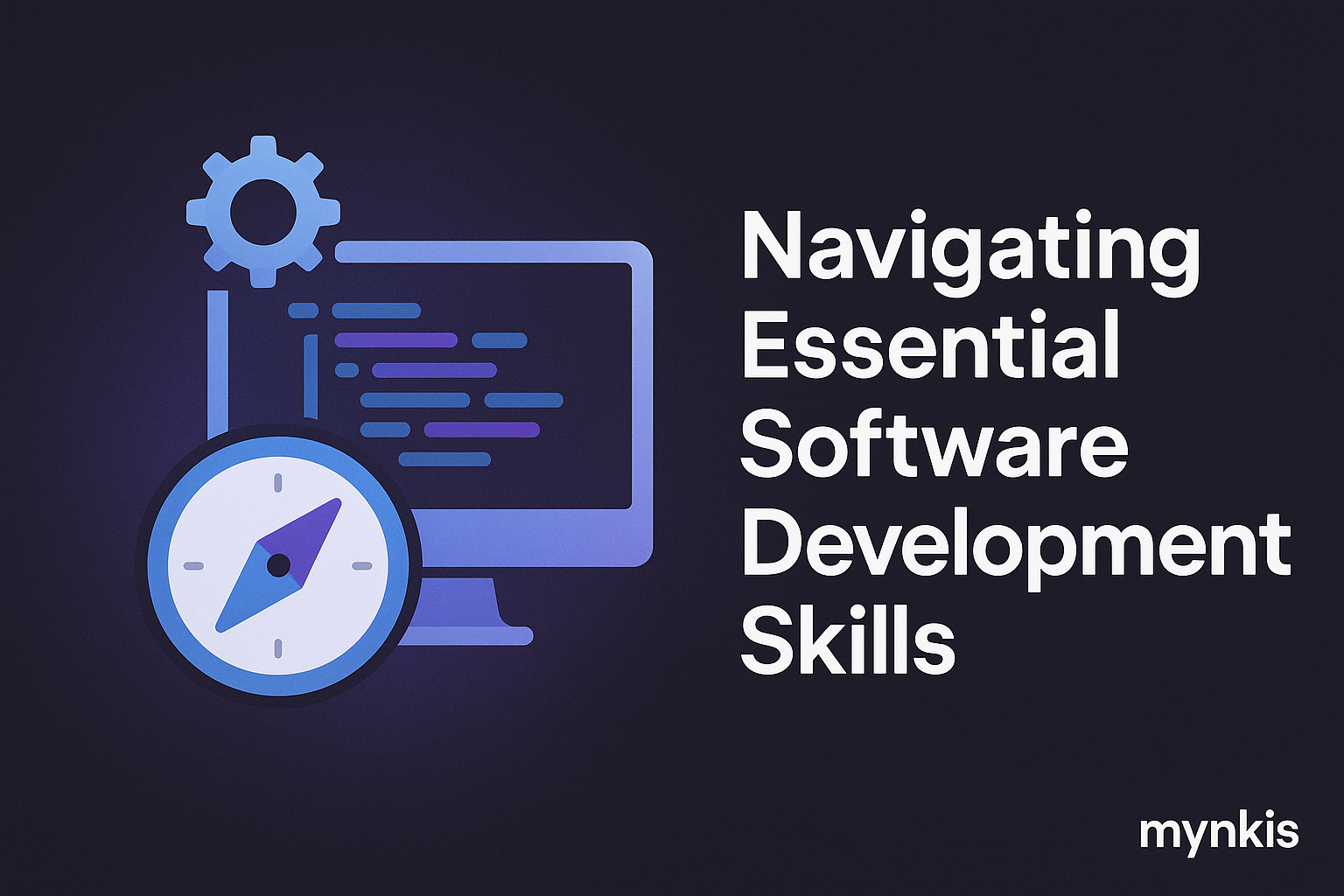Schedule a Demo
In the realm of digital growth, custom software development stands out as a pillar of innovation. From driving performance to enhancing user engagement, the skills needed in this field are crucial for professionals looking to stay ahead. Today, software skills are not just valuable in the tech industry; they're sought after across sectors, from healthcare to finance, and everything in between.
A solid foundation in programming languages like JavaScript, Python, and Java is non-negotiable. Here's why: JavaScript reigns supreme for web-based applications, offering dynamic and interactive user experiences. Python, with its simplicity, is celebrated for data analysis, automation, and machine learning. Meanwhile, Java's 'write once, run anywhere' philosophy supports cross-platform development with robust performance.
Version control is the unsung hero of software development. Systems like Git enable developers to track changes, collaborate effectively, and manage projects with precision. Without it, managing contributions from multiple team members could become a complex tangle. For those new to version control, starting with Git and a platform like GitHub can lay a strong foundation.
In my years consulting with enterprise leaders, I've found that software development isn't just about coding. It's about understanding a business problem and architecting a solution that addresses it effectively. Cultivating a robust problem-solving mindset involves not only defining clear objectives but also iterating solutions through testing and feedback.
Technology's rapid pace means the learning never stops. Keeping up with industry reports from tech giants like Google Cloud or insights from conferences hosted by organizations like DevSum can offer valuable perspectives on trends. For a developer at any stage, carving out time for continuing education--whether through online courses, workshops, or reading--is crucial.
Enterprise web solutions must do more than function; they must engage and delight users. The focus on user experience (UX) goes beyond looks--it entails crafting intuitive journeys that increase user satisfaction and promote effectiveness. Developers should work closely with designers to understand and apply UX principles to their work.
Effective collaboration lies at the heart of successful projects. In many S&P 500 environments I've encountered, conveying technical concepts to non-technical stakeholders is crucial. Utilizing tools like Slack or Jira keeps everyone from developers to executives on the same page. But it's not just about tools; it's about building relationships and trust.
Even with powerful computers at our fingertips, efficiency and performance hinge on smart data management. A deep understanding of data structures (like arrays, linked lists) and algorithms underpins the optimal performance of custom software development projects. These skills enable developers to write code that not only works but excels.
Launching a software solution is one thing, but ensuring its quality is another. Testing and debugging are where failures are caught and fixed before they reach the end user. Tools like Selenium for automated testing or Postman for API testing become indispensable in maintaining high standards of quality.
In today's business environment, where data breaches can devastate company reputations, incorporating cybersecurity into development practices is essential. Not only for regulatory compliance but also to protect a business's intellectual property and user data. Basic awareness of security best practices, from encryption to secure coding, is crucial for every developer.
As we delve into cutting-edge areas like DevOps, the fusion of development and operations heralds more agile enterprises. Implementing DevOps practices promotes speed and reliability in deploying software. A key aspect is leveraging automation tools for continuous integration and continuous delivery (CI/CD), vastly improving the software development lifecycle.
Regardless of size, custom software development projects benefit from solid project management practices. Frameworks such as Agile or Waterfall provide different approaches to navigating complexity. Selecting the appropriate methodology can streamline processes, manage timelines, and ensure stakeholder satisfaction. However, like all aspects of software development, project management skills must be flexible and adapt to real-time demands.
As we peer into the horizon, the future of software development seems entwined with emerging technologies. Whether it's refining capabilities in artificial intelligence, hopping aboard the blockchain train, or integrating IoT devices, developers need to stay knowledgeable and agile. Proactively exploring these innovations can offer practices new avenues to show their edge in the market.
